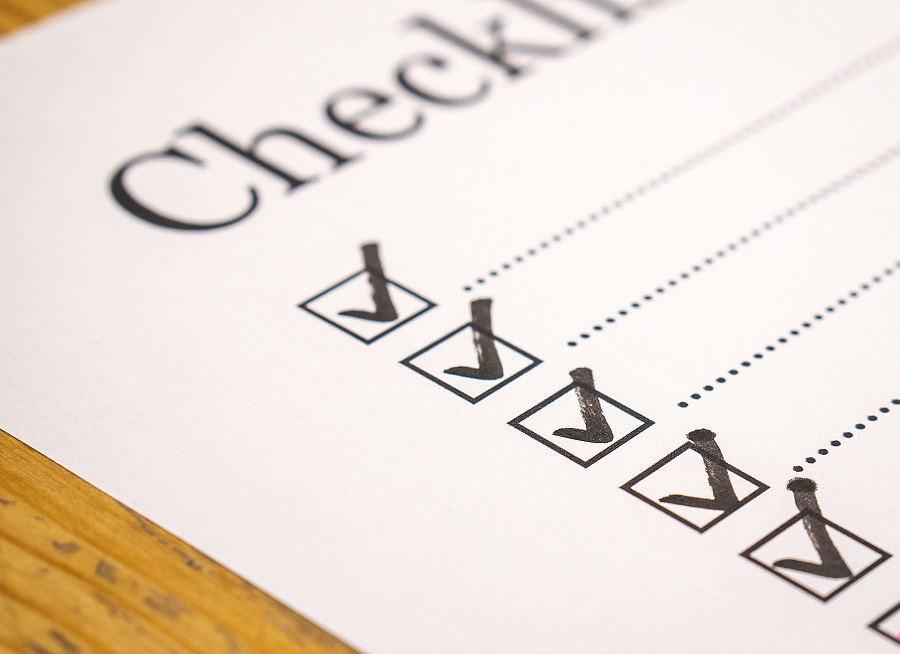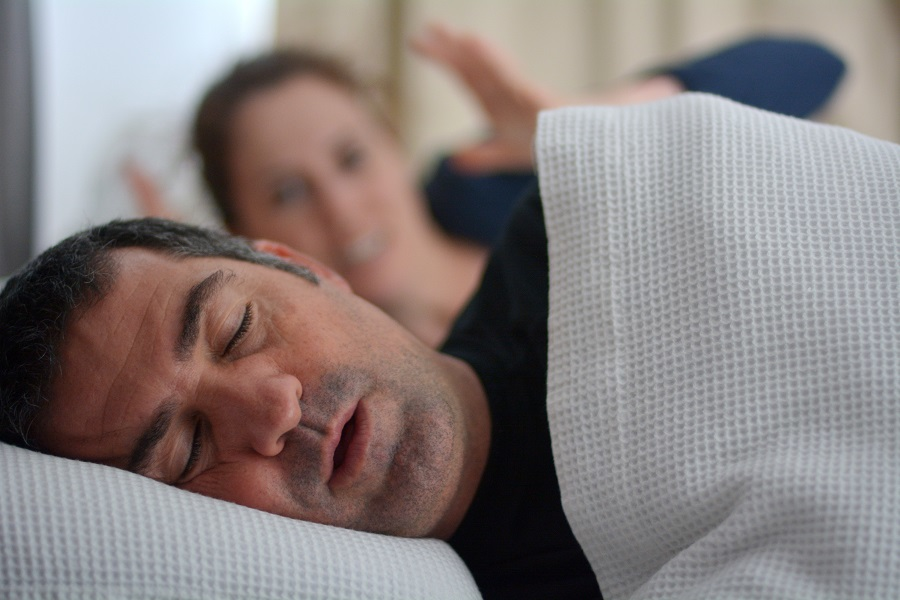We all know someone who snores; we’ve heard it loud and clear every night we’ve lived with them. Some of us have even heard the harrowing signs of Sleep Apnea – that identifiable break of silence in the snore, followed by throaty gasps for breath. You may have brought it up with the snorer. Tried to explain it, reenact it, even film it! Here’s why it’s important to keep encouraging the snorer in your life to get checked out. You could be saving them from a life with untreated Obstructive Sleep Apnea.
How Snoring is Different from Sleep Apnea
While both snoring and Sleep Apnea can be loud and disruptive to both the snorer and their bed partner, Sleep Apnea has a few key signs that will help better assess your snorer’s likelihood for having Obstructive Sleep Apnea.
Symptoms of Sleep Apnea include fatigue during the day, dry mouth, sore throat, or possible headaches in the morning, difficulty concentrating, high blood pressure, nighttime sweating, and a decreased libido.
The most noticeable Sleep Apnea symptoms can only be recognized by you, the bed partner. If you notice your bed partner pausing while breathing or waking up, gasping for air and making choking sounds, this is a sign of Obstructive Sleep Apnea. If you’ve noticed their mood has changed and they’ve become irritable or depressed, that too could be a sign.
Now that you have a better idea of how to recognize Sleep Apnea symptoms, let’s get into some FAQs to help you better understand what Sleep Apnea is, how it’s treated, and where to go from here.
What is Obstructive Sleep Apnea? And Other Questions You Should Be Ready to Answer
Obstructive Sleep Apnea (OSA) is a condition in which a patient’s muscles and tissues in the throat and air passage relax while sleeping, and this impedes the flow of air into the lungs due to a blockage of the airway.
Simply put, it is a condition in which the body’s own relaxation can create a throat blockage, making it harder to breathe properly while sleeping.
This lack of oxygen can then cause the snorer to suddenly wake up, gasping for air. This can happen many times in a night, especially in the REM stages of sleep.
How is Obstructive Sleep Apnea diagnosed?
Typically, when a patient is suspected of having Sleep Apnea, an overnight sleep study will be held. This sleep study, or Polysomnogram test, is most often conducted in a specialized sleep lab by both your Sleep Specialist and a respirational therapist but can be done at home at the discretion of your doctor. This test is used to diagnose a wide array of sleep conditions, including restless leg syndrome, narcolepsy, and, of course, Sleep Apnea.
How is Obstructive Sleep Apnea treated?
The most common and effective course of treatment for Sleep Apnea is the use of a CPAP machine. CPAP stands for Continuous Positive Airway Pressure. The device is attached to the snorer’s face at night and provides constant airflow, at the prescribed pressure, to keep the airway passage open and clear of blockages.
Can Sleep Apnea be cured?
To put it plainly, no. There is no one cure-all method, as of yet, that can get rid of Sleep Apnea once and for all.
If it can’t be cured, what are the benefits of treating Sleep Apnea?
Consistent use of a CPAP machine has been shown to improve the overall quality of life by improving the quality of sleep, give the patient more energy and motivation, improving job performance, mood, and disposition, increasing sexual drive and performance, and improving alertness while driving. However, the biggest benefit of treating Sleep Apnea is to avoid a higher risk for more serious conditions that have been linked to untreated Sleep Apnea. More on this later.
What to say when your snorer asks, “Why are you talking to me about this?”
When addressing snoring or sleep apnea symptoms with the snorer, keep in mind they may be unaware of their symptoms entirely and not understand exactly what you’re trying to 
The Sleep Apnea Test: A Questionnaire for the Snorer in Your Life
Try having your snorer take a Sleep Apnea Test to figure out how high of a risk they are for having Sleep Apnea. The test itself asks very straightforward questions about a snorer’s regular sleeping experience, helping bring to light abnormalities they may not have considered to be irregular at all.
If the results are higher than “Low Risk”, you should make an appointment with a certified Sleep Specialist, who can help in properly diagnosing your sleep condition.
A Case for Getting Diagnosed and Treated
Now, let’s talk about those more serious symptoms we touched on earlier. There are many conditions that can be caused or exacerbated by untreated Sleep Apnea, ranging from mild to severe. Those conditions are:
- Morning Headaches
- Chronic Fatigue
- Obesity
- Depression
- Diabetes
- Glaucoma
- High Blood Pressure
- Cardiac Arrhythmia
- Congestive Heart Failure
- Heart Attack
- Stroke
According to the CDC, about half of Americans are already predisposed to a serious heart condition through one of three key risk factors: high cholesterol, high blood pressure, and smoking. On top of that, it’s estimated 80% of the 22 million Americans who have moderate to severe Sleep Apnea are undiagnosed.
Tips on How to Approach Your Snorer and Get Great Results
As you have read, Sleep Apnea is a serious condition that should not go untreated. Talking to your snorer about Sleep Apnea symptoms you’ve noticed is the first step. Make sure to approach them calmly and be patient in helping them understand. Present research and symptoms, explain how you’ve noticed them and how often, and remind them you are there to support them throughout this process. The information may be scary or overwhelming at first – they may get frustrated and not want to discuss it again. If this happens, take a breath and let the information set in. Approach the topic again at a later date.
If your snorer has been diagnosed with Sleep Apnea, keep CPAP.com in mind when purchasing your device. Our team of specialists know the equipment inside and out and can help guide you to the right equipment. Whatever your CPAP needs, we’re here to help.





